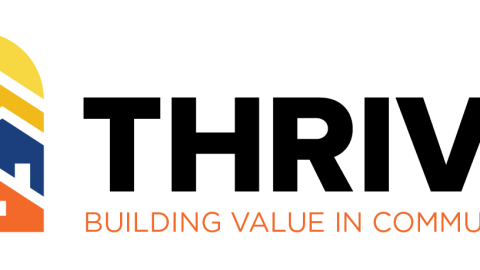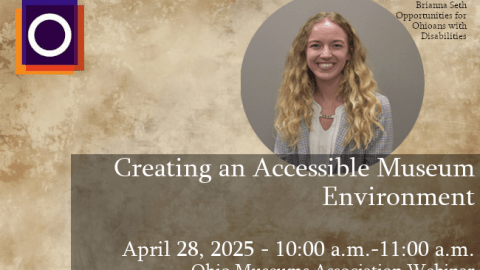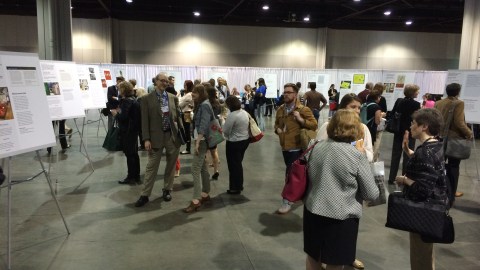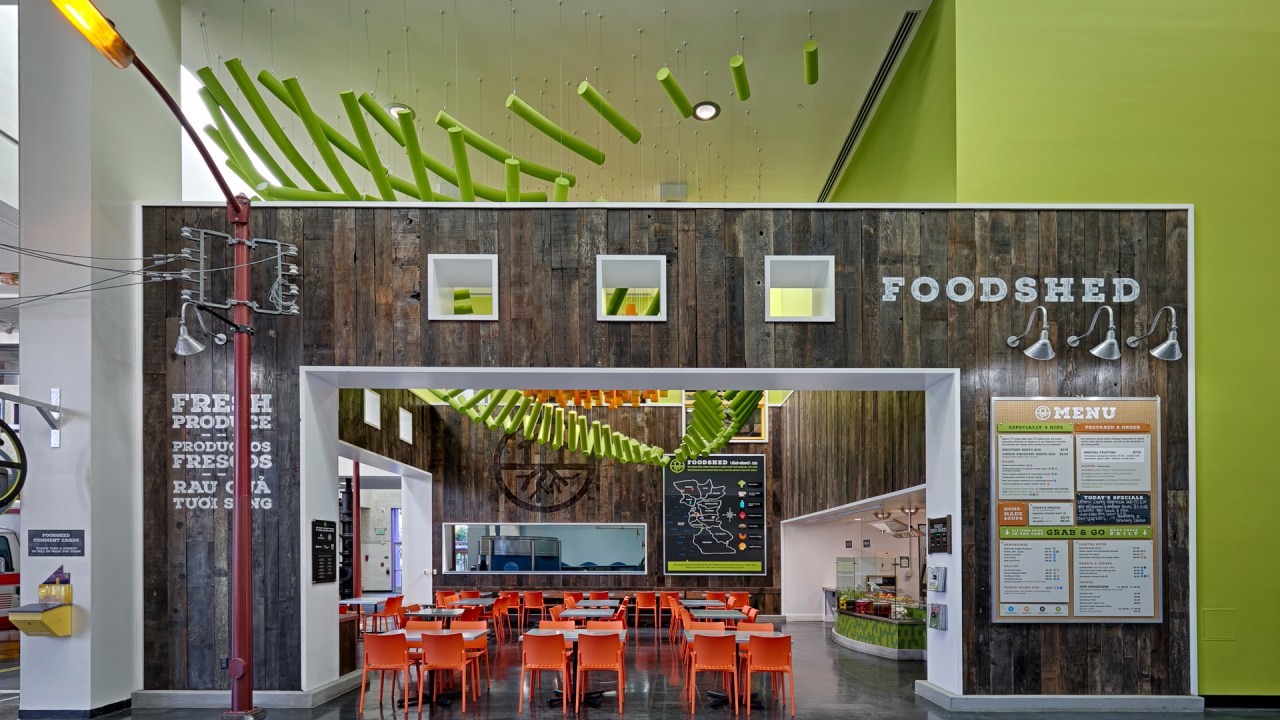
Ask most museum directors, restaurant consultants, and other knowledgeable folks and they will tell you: “Hire an outside food-service company to run your café.” Well, that makes perfect sense—that is what most museums choose to do. The alternative option, running your own café, introduces a host of challenges not usually encountered in day-to-day museum operations.
If your primary goal is to have a food operation that contributes to your bottom line, hiring a contract food-service company is the right thing to do. But what if your vision for your café goes beyond seeing it as a profit center?
When Marilee Jennings, the Executive Director of Children’s Discovery Museum of San Jose, thought about the food that she wanted served at the museum, she had lofty aspirations. She understood that food could be the cause of health problems, environmental disasters, and even social and cultural justice troubles; yet it can also be the cure for these ailments. With the encouragement and support of her board, she embarked on a journey of change.
When created and managed with intention, a café can play a crucial role in a museum’s goal of informing, inspiring, and healing the community and the planet. A café that is fully integrated into the mission of a museum can eloquently and concisely express the museum’s complex range of values, like a haiku on a plate.
As with any DIY endeavor, there are challenges in running a café like this. Sourcing and purchasing fresh produce is very different from purchasing office supplies. Designing a kitchen—choosing the equipment and managing the build-out and installation—is similar to designing other spaces, but also poses unique challenges that require expertise to manage smoothly.
The process for hiring kitchen staff can also be quite different from what museum hiring managers are used to. The skills and qualities valuable in food-service workers are distinct from those in other areas of the museum field, and it helps to have experience in hiring for this area.
After working with a group of consultants, architects, designers, and contractors, the old café at the museum was transformed into FoodShed, the heart of a program not only dedicated to serving good food, but to being the nexus for educational and innovative programs. Once FoodShed was built out, Marilee hired an individual who was not only a chef, but also an advocate for healthy kids, a healthy planet, and healthy communities.
Providing food that is not only healthy and responsibly produced but is also affordable and appealing to a diverse clientele is an admirable goal in itself, but it is just the beginning of what your café can and should do.
Healthy Kids
As part of a children’s museum, the café born of Marilee’s vision, FoodShed, focuses on providing healthy food and inspiring our visitors to make healthy eating an ongoing part of their lives.
Everyone responsible for feeding children knows that diet-linked diseases among children are a major concern. Diet can play a role in diabetes, high blood pressure, obesity, and autoimmune diseases, which makes it all the more crucial to feed children well and set them up with healthy habits. For that reason, we go beyond just offering healthy options to our visitors; we actively reach out to the community. FoodShed collaborates with the H.E.A.L. (Healthy Eating, Active Living) program at Kaiser Permanente Santa Clara to offer hands-on cooking classes to kids ages 6-17 and their parents on how to prepare easy-to-make, delicious snacks and meals with time and budget in mind.
H.E.A.L. Director Dr. Allison Collins says:
“The cooking class partnership with Children’s Discovery Museum has made teaching healthy nutrition to our kids and families so much more fun, impactful, and meaningful both for me as a physician and certainly for our patients. It is a very popular part of our program. We get kids to taste and often enjoy foods they never would have tried on their own. And at the end of class, we all sit down and eat together, discussing the importance of sitting down and enjoying good food together, savoring our creations.”
Healthy Planet
The food that we eat does not only affect our health, but also our planet’s. Food production has an enormous impact on the amount of greenhouse gasses in our atmosphere. The huge amount of non-renewable resources that conventional food production relies on pollutes our air, water, and soil.
The non-therapeutic use of antibiotics in farm animals might put us at risk of “superbugs” that do not respond to current antibiotics. The mono-cropping of corn, soy, and other produce depletes our soil, which then leads to even greater dependence on fossil fuel inputs and the use of persistent herbicides and pesticides.
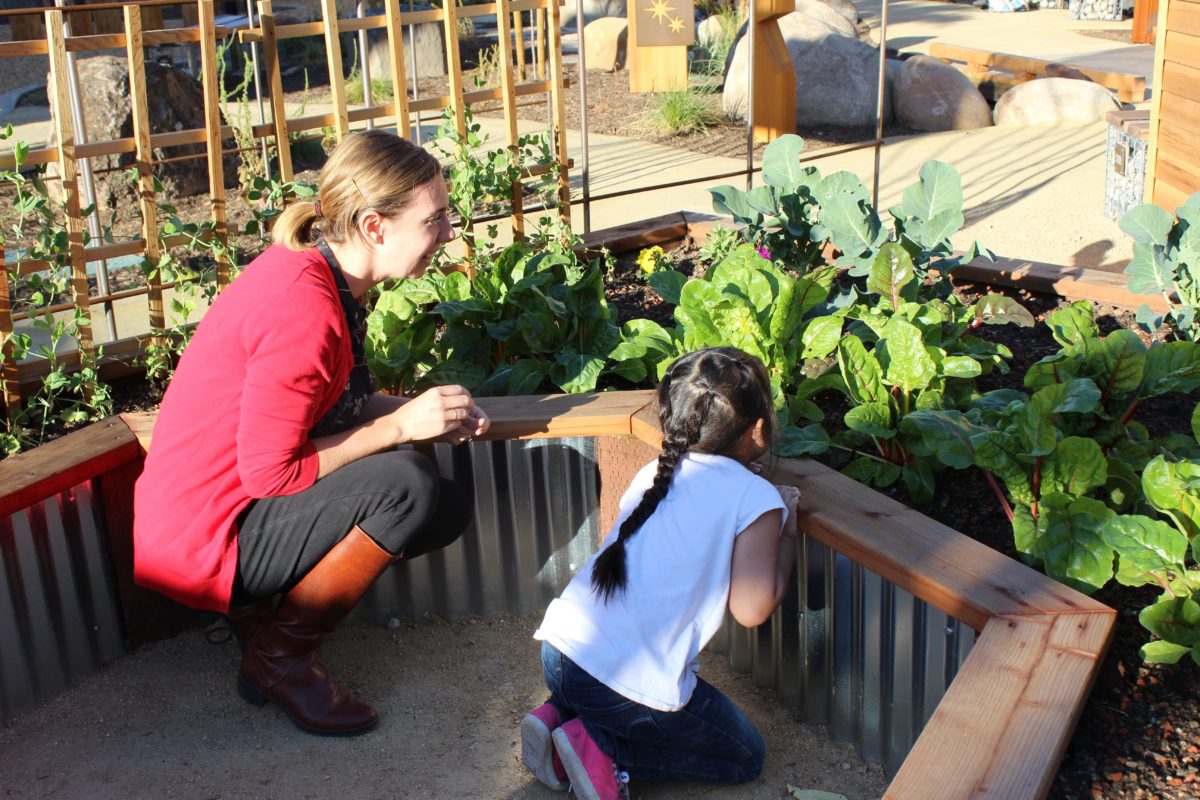
FoodShed at the museum not only sources food that is produced without chemical additives or anything ending with “-cide;” our Thrive Garden also demonstrates the delicate balance in nature that can be maintained and enhanced by sustainable growing practices.
Christine Thalls, our Urban Ecology Program Developer, notes:
“Children and adults are equally excited when they see Brussels sprouts on a stalk or an artichoke blooming. Planting varieties that are just slightly different from what children usually see can make a big difference when it comes to their willingness to taste new things. For example, I recently watched a little girl in our garden trying a leaf of every color of the rainbow chard to see if they were different flavors. When children are part of the full process of choosing, harvesting, washing, and eating their food it becomes a more meaningful experience.”
Healthy Communities
Children’s Discovery Museum of San Jose serves a diverse population that includes a variety of immigrant communities. FoodShed is one significant way the museum strives to welcome new immigrant families, with our rotating menu of dishes from around the world and our participation in the museum’s Common Ground initiative. This two-year initiative launched in 2017 to promote cross-cultural understanding through three dinners and two community workshops and was funded in part by a competitive grant from the Institute of Museum and Library Services (IMLS).
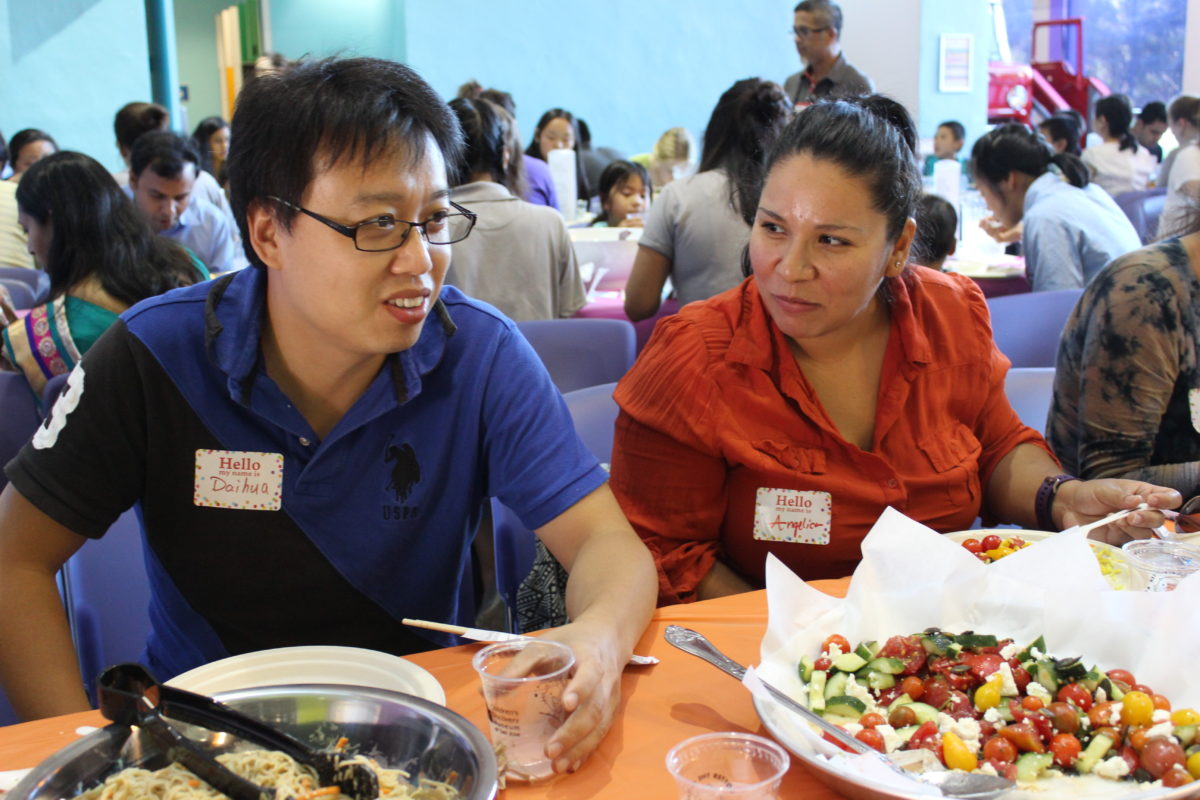
Over the course of three nights, the museum hosted over five hundred folks from our ethnically diverse community to share a meal with other people of different cultures and backgrounds. Around our tables, our guests shared memories and stories of their homelands and of coming to the United States. The hopes and dreams they have for their children were the same regardless of where they came from. We served traditional Latin American, Vietnamese, Chinese, Indian, and Filipino dishes that all utilized the tomato, a vegetable that emigrated around the world.
FoodShed is much more than a revenue center. It nourishes body and mind, offers tasty lessons on cultural competencies, and reinforces the museum’s role in healing our children, our communities, and our environment.
Asked if she would make the same decision to have a self-run food service rather than contracting out, Marilee said:
“Absolutely yes! Now families and children have healthy, organic, and locally-sourced choices that align with our mission and strategic commitments of Preventing Childhood Obesity and Environmental Stewardship.”
“As it turns out, good food is good business.”
About the author:
Larry Bain is driven by the vision of making good food available for all, forever. He welcomes questions and delights in sharing his experiences and insights. Help him make this a movement by reaching him at larry@larrybain.net to share your experiences and concerns.


